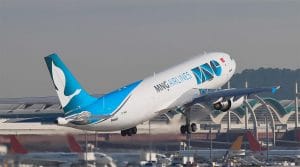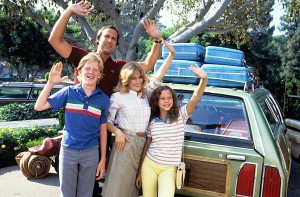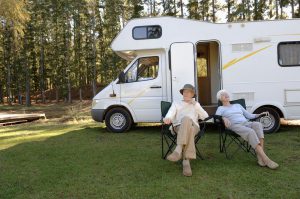
While many folks have the itch to get on a jumbo jet and fly somewhere – anywhere – this summer for vacation, AAA says would-be travelers aren’t doing it.
“My husband is itching to get on a plane,” said Jocelyn Coley, the CEO of a Detroit public relations agency, and normally she would be, too, preparing for her annual birthday trip to “an island,” Instead, they’ll likely be driving to Torch Lake, about three hours north, their normal summer travel plans disrupted by the COVID-19 pandemic.
Coley and her husband are by no means the only ones rethinking how – indeed, if — to travel this year. A new study by AAA reveals just how much the pandemic is impacting our plans. Overall travel is expected to be down sharply, and virtual all of the anticipated 707 million trips Americans are forecast to take this summer will be by car, rather than plane, bus, rail or boat.
Those trips are far more likely to be short ones, as well, according to the travel and road service, with many folks having canceled out the big plans they might have made months ago. Instead, “They are making decisions more on the spur of the moment, maybe 48 to 72 hours in advance,” said Jeanette Casselano, a spokesperson for the AAA.
(Study reveals no tangible difference in safety for convertibles.)
Overall, summer travel is forecast to fall 14.6%, the organization said in a forecast released today. But that’s not the most telling statistic. Of the 707 trips Americans are expected to take 96.6% of them will be by car. Of the 828 million summer trips taken during 2019, AAA reported, 85.3% where by personal automobile.

Summer’s here and its time for Americans to get in the car for vacations and the Wagon Queen Family Truckster is going to be handling the load for most.
When it comes to air travel, summer holiday trips are forecast to decline by a whopping 73.9%, to just 15.1 million. The scenario is even worse for rail, bus and boat, where AAA anticipates an 85.5% collective decline, to just 9.3 million.
This helps explain why so many flights have been cut, while Amtrak is trimming its schedule on even the normally busiest routes. And while cruise ships claim to be seeing a surge in bookings, it remains to be seen if – or when – that actually plays out.
On the plus side for the travel industry, a summary of the AAA summer travel study suggests, “Travelers remain cautious, but optimism is increasing quickly.” Perhaps, but spokesperson Casselano told TheDetroitBureau.com that this optimism is being tempered by daily headlines.
Wednesday saw the U.S. set a new daily record for the number of reported COVID-19 infections, with new spikes occurring in more than half of the 50 states. That’s especially true in traditional travel destinations, such as Florida, California and Texas.
Meanwhile, many parts of the country are enacting – or, at the least, considering – new restrictions, ranging from mandatory mask use to closing restaurants, bars and other destinations. New York is one of several cities in the Northeast planning to require visitors from states with large outbreaks to quarantine upon their arrival. And, for those still planning trips abroad, the European Union is considering an outright ban on travelers from the United States.
As a result of COVID, “I have canceled multiple international and domestic trips,” said Annalisa Esposito Bluhm, a manager with General Motors, who frequently travels for both work and pleasure. “We are not traveling anywhere. This has also impacted how my family engages at our summer favorite: our private swim and tennis club. I think anything public is too risky right now. We are camping in our backyard and doing day trips to my parent’s pool … and that’s about it,” she said in an e-mail.
(Americans drove 39.8% fewer miles in April due to pandemic.)
The new AAA study isn’t the only one that finds major changes in America’s collective summer travel plans. Another, by Autolist.com, found just 18% of those surveyed planning to move ahead with their original summer plans.
“Despite the phased reopening of dozens of states across the U.S., and months cooped up because of stay-at-home orders, it’s obvious that people remain wary of summer travel — and justifiably so,” said Chase Disher, analyst at Autolist. “The great American road trip will need to take a summer off.”
The COVID crisis has some Americans exploring new options for travel, such as buying or renting a recreational vehicle. Preliminary reports suggest that business is actually up for many RV manufacturers.
A survey conducted in May for Airstream, the maker of those iconic silver RVs, found 60% of the 1,252 respondents saying that “feeling safe is critical to traveling again and 64% of people want to avoid crowds.” The study, the company said, found only 18% of consumers feeling safe about flying or staying in hotels.
While recreational vehicles may project the image of endless wanderlust, travelers on long, meandering excursions across the country, even here, things have changed. Airstream found its owners and renters planning to take shorter, one to three-day trips, while also sticking closer to home, typically within 100 miles.

Ultimately, this version of “relaxing poolside” is likely to be the most common “vacation” this summer.
Lois Briggs Swalwell and her husband are regular RV travelers, but they canceled the long trip they’d planned from Michigan to Montana and Colorado. Instead, they’ll be staying closer to home when they do take their rig on the road, with trips no further than Wisconsin in the offing.
Fear of catching COVID-19 may be the dominant factor for this year’s shift in travel plans, but the economic downturn triggered by the pandemic is also having a clear impact, according to AAA, Americans becoming far more cautious about their budgets.
While there are signs of recovery, the national GDP will be down sharply from a year ago, even while unemployment will remain high, said the summary of the AAA study. As a result, “consumer spending will remain muted and see a decline of 12% compared to last year.”
(Pandemic keeping holiday travel to lowest levels in two decades.)
That alone would be a formula for keeping summer travel and spending on a tight leash, even if there wasn’t a pandemic sweeping across the country.

